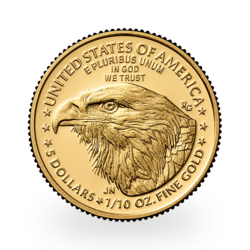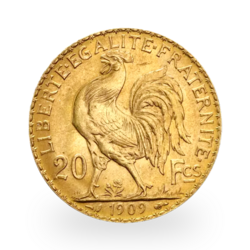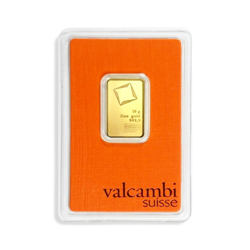In the latest stunning development involving a documented failure of a bank to deliver physical gold when demanded, yesterday we reported that according to German website godmode-trader.de, a client of the Xetra-Gold Exchange-Traded Commodity was told the fund's designated sponsor, Deutsche Bank, would be unable to deliver the requested gold. This was contrary to the explict reps and warranties made explicitly in the Xetra-Gold's prospectus, which said that investors are entitled to the delivery of the certified amount of physical gold at any time, and proudly added that "since the introduction of Xetra-Gold in 2007, investors have exercised this right 900 times, with a total of 4.5 tons of gold delivered."
As the German article concluded: anyone who wants to easily convert their Xetra-Gold holdings into physical gold - at least for clients of Deutsche Bank - can do so only by selling their shares, and then buying gold coins or bars directly elsewhere. Which leads the author to the logical question: what is the worth of the Xetra-Gold service, which certifies the right to redeem physical gold, if said delivery is no longer possible? In other words, what was supposedly an ETC which promised physical delivery upon demand, is nothing more than yet another "paper only" play.
We asked another, more nuanced question: is the inability to deliver physical gold an issue with Xetra-Gold, or with the company's "designated sponsor", Deutsche Bank, and if the latter is suddenly unable to satisfy even the smallest of delivery requests by retail clients, just how pervasive is the global physical gold shortage?
Our report has stirred a significant response, both at Deutsche Bank, and at Xetra-Gold, which today filed an official response, one which can be read in German on the following page.
What is notable is that instead of immediately refuting the story - as it should have done if there is no breach of prospectus covenants - and declaring that any and all physical gold demands have and will be satisfied, Xetra took a very circular approach to responding, one which in effect confirmed our concerns, that the issue was not so much with Xetra, but with the sponsor bank, in this case Deutsche Bank.
Furthermore, the author of the original godmode article, Oliver Baron, penned his own reaction, in an article titled "Deutsche Boerse takes a stand." He writes that "yesterday's article "Xetra-Gold: Nothing but a scrap of paper?" has struck nerves: Not only that GodmodeTrader was cited among others, at "Zero Hedge" a financial website influential on Wall Street, but also at Deutsche Bank and at Deutsche Boerse, where the article has caused quite an internal stir, as Godmode traders was informed."
He further writes that Deutsche Boerse Commodities has released a fairly spongy formulated observation on the physical delivery of Xetra-Gold. This is what is said:
Deutsche Börse Commodities GmbH stresses that owners of Xetra Gold units can exercise their right to delivery of securitised gold at any time. The gold is delivered by the bank branch on which the investor has its securities account – on the condition that the branch offers this service, as the gold can only be delivered through the investor's custodian bank.
As we reported yesterday, what made this particular "failure to deliver" notable is that the original client had asked for delivery via a Deutsche Bank branch, the same bank as the ETC's sponsor, which is why, as we noted before, this appears to have been a problem involving not Xetra-Gold, as much as Deutsche Bank itself.
Baron agrees. As he writes, "in other words, it depends, according to Deutsche Boerse Commodities, on the particular bank branch whether the physical delivery can be carried out."
And, as we learned last night, it does appear that if the delivery is requested at a Deutsche Bank branch, the answer is no.
But this is where it gets even worse. As Baron adds, in a telephone conversation with the author, the Deutsche Boerse Commodities exchange was unwilling to supply further information to Godmode traders whether physical delivery is generally feasible at most bank branches or not. And worst of all, "the exchange was unable to name any bank which is in a position to deliver physical gold without problems."
Baron's conclusion: "the "right" for actual delivery at Xetra-Gold is theoretical: physical delivery is only possible if the respective bank branch also cooperates. Suspicious gold investors should consider Xetra-Gold as another form of paper gold and not as a physical gold investment."
Our take is slightly different: while we already know that physical delivery at Deutsche Bank appears to have been compromised, according to the Deutsche Boerse response, the ability of any and every other bank in Germany to deliver gold is now likewise questionable. Which begs the question: where is all the physical gold?
Source: ZeroHedge
Reproduction, in whole or in part, is authorized as long as it includes all the text hyperlinks and a link back to the original source.
The information contained in this article is for information purposes only and does not constitute investment advice or a recommendation to buy or sell.

















